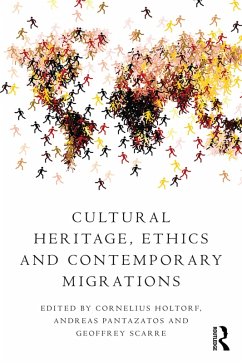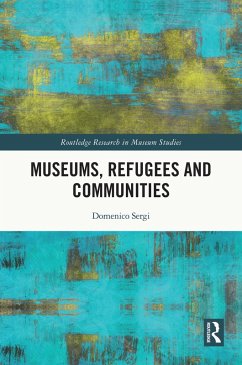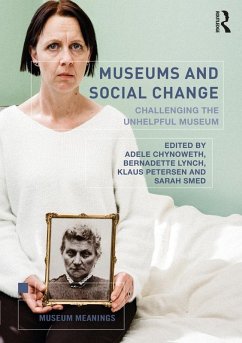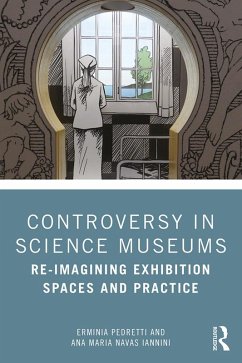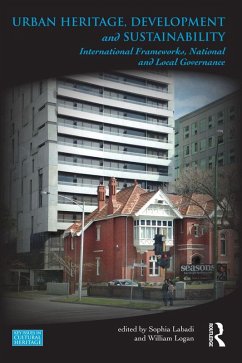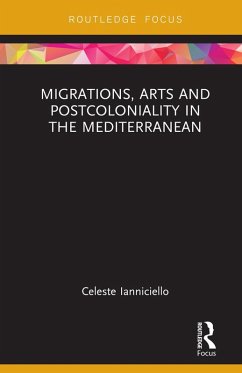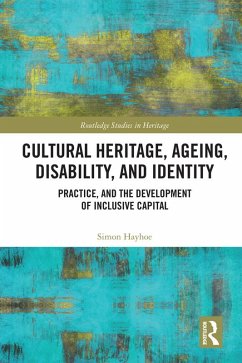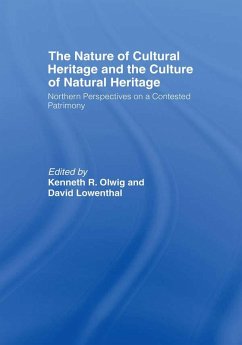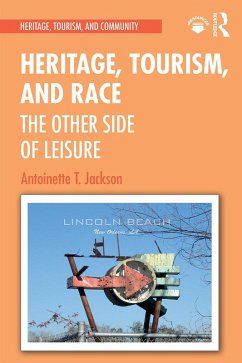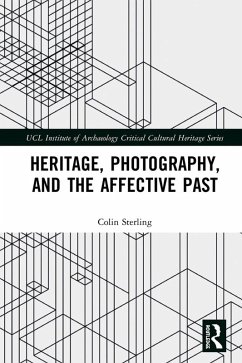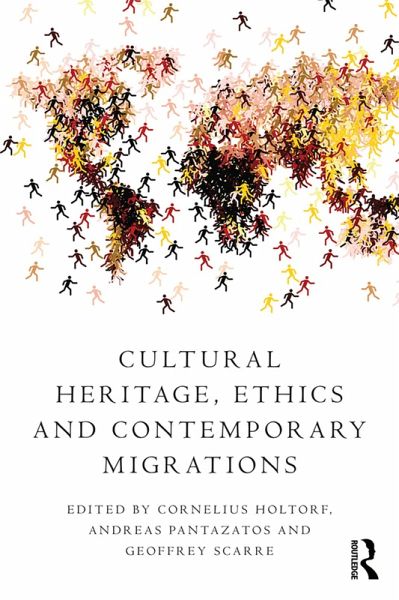
Cultural Heritage, Ethics and Contemporary Migrations (eBook, PDF)
Versandkostenfrei!
Sofort per Download lieferbar
39,95 €
inkl. MwSt.
Weitere Ausgaben:

PAYBACK Punkte
20 °P sammeln!
Cultural Heritage, Ethics and Contemporary Migrations breaks new ground in our understanding of the challenges faced by heritage practitioners and researchers in the contemporary world of mass migration, where people encounter new cultural heritage and relocate their own. It focuses particularly on issues affecting archaeological heritage sites and artefacts, which help determine and maintain social identity, a role problematised when populations are in flux. This diverse and authoritative collection brings together international specialists to discuss socio-political and ethical implications ...
Cultural Heritage, Ethics and Contemporary Migrations breaks new ground in our understanding of the challenges faced by heritage practitioners and researchers in the contemporary world of mass migration, where people encounter new cultural heritage and relocate their own. It focuses particularly on issues affecting archaeological heritage sites and artefacts, which help determine and maintain social identity, a role problematised when populations are in flux. This diverse and authoritative collection brings together international specialists to discuss socio-political and ethical implications for the management of archaeological heritage in global society.
With contributions by authors from a range of disciplinary backgrounds, including archaeologists, philosophers, cultural historians and custodians of cultural heritage, the volume explores a rich mix of contrasting, yet complementary, viewpoints and approaches. Among the topics discussed are the relations between culture and identity; the potentialities of museums and monuments to support or subvert a people's sense of who they are; and how cultural heritage has been used to bring together communities containing people of different origins and traditions, yet without erasing or blurring their distinctive cultural features.
Cultural Heritage, Ethics and Contemporary Migrations is a crucial text for archaeologists, curators, policymakers and others working in the heritage field, as well as for philosophers, political scientists and other readers interested in the links between immigration and cultural heritage.
With contributions by authors from a range of disciplinary backgrounds, including archaeologists, philosophers, cultural historians and custodians of cultural heritage, the volume explores a rich mix of contrasting, yet complementary, viewpoints and approaches. Among the topics discussed are the relations between culture and identity; the potentialities of museums and monuments to support or subvert a people's sense of who they are; and how cultural heritage has been used to bring together communities containing people of different origins and traditions, yet without erasing or blurring their distinctive cultural features.
Cultural Heritage, Ethics and Contemporary Migrations is a crucial text for archaeologists, curators, policymakers and others working in the heritage field, as well as for philosophers, political scientists and other readers interested in the links between immigration and cultural heritage.
Dieser Download kann aus rechtlichen Gründen nur mit Rechnungsadresse in A, B, BG, CY, CZ, D, DK, EW, E, FIN, F, GR, HR, H, IRL, I, LT, L, LR, M, NL, PL, P, R, S, SLO, SK ausgeliefert werden.




